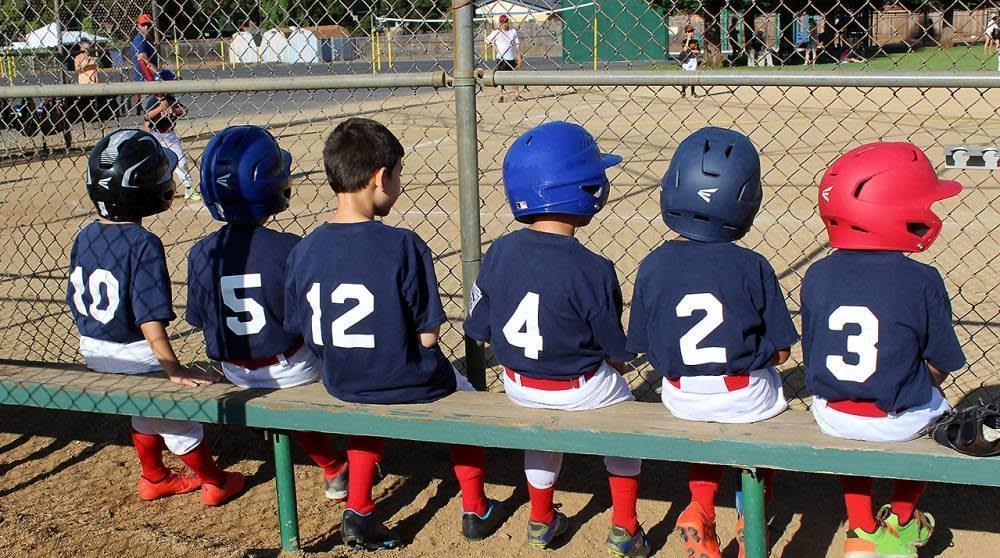
By: Gino Trapani, Issaquah (Wash.) Little League
I recently wrapped up my third year of coaching Little League Baseball®. The final game and end-of-season party is always a mixed bag of emotions for me. On one hand, I’m super proud and happy to have the opportunity to influence kids and be around a game I love. On the other hand, I get sad because I see all the progression and bonds these kids made throughout the season and I just don’t want the momentum and good vibes to end.
I was hesitant going into coaching for the first time. I’m more of an introvert, tend to shy away from speaking in front of large groups, worried if I would be a good leader and how I would handle the crazy parent who thinks their seven-year-old is the next Ken Griffey, Jr. My son wanted to play and asked point blank if I would be his coach. I did it for him.
And that’s the first thing coaching Little League® taught me about leadership.
It’s not about me.
Leadership is about teaching and inspiring others to be their best. Creating an environment that people want to be a part of, enjoy and grow within. Sharing and providing the knowledge and tools to help them be successful. Not just for this season, but setting them up for next season and beyond. Being empathetic to each individual’s needs and listening to what they have to say. Now, when coaching 7-8-year-olds I’m usually the one having to tell them to listen, but always having an ear first to understand them better.
Listening = understanding = empathy = connection = action = better leadership.
Failure is an opportunity for success.
Nobody likes to strikeout. Out of all the team sports, baseball puts the individual in the spotlight more than any other. It’s lonely at the plate and everybody sees it if you strikeout. It’s a long walk back to the dugout. Not only that, but baseball is the weird dichotomy where ‘failing’ 7 out of 10 times at the plate is actually success.
Good leaders, however, will take a moment of failure to create opportunities for success. Good leaders will see if the player didn’t have their elbow up, or if the feet were in the wrong stance, or if they swung too early or late. Communicate, teach, inspire for the next at bat. Or, maybe the batter did everything correctly and it just didn’t connect. Great. Don’t change a thing and keep grinding. The work will pay off.
Even bigger than the ‘technical’ stuff is the mental aspect. Good leaders will inspire a mindset of positivity and engagement that is the foundation of everything and there will be a “want-to” to absorb and execute what is being taught.
It’s not just X’s and O’s.
Sure, we’re teaching kids to be better ball players; catching, throwing, base running, understanding what to do in various situations. But more than that, we’re trying to inspire teamwork, good sportsmanship, respect, the value of hard work to achieve their goals and being good humans on and off the field. Baseball or business, good leaders build people up beyond the diamond or the office.
Leadership is not one-size-fits-all.
The best leaders I’ve seen are authentic and true to themselves. They don’t change who they are but they do adjust how they lead individuals. In baseball, there are team rules that govern the collective unit. Within that unit, however, are 14 or so individual minds that have different abilities, talents, temperaments, attention spans, and ways of learning. Good leaders take the time to get to know the individuals and craft communication that taps into the individual to bring out the best in them.
Have a vision and a plan to execute.
A parent of one of my players told me that we were the most organized coaching staff her kid has played for. Of course that made me feel good, but honestly throughout the season I was always very self-critical on how I did things. Were the kids learning and having fun? Am I too lax or too hard? Is this practice format working?
Before the season started, another coach and I spent a Sunday at a coaching clinic, then a lot of time watching videos, putting together practice plans and meeting to develop a plan and strategy for the season set with goals and action items. It was more than we had done the previous two seasons combined and the difference was amazing.
Moral of the story: We put in the work to create a plan to give our players the best opportunity to learn and grow as players and individuals, but most of all to have fun.
Patience.
No other option when coaching 7- and 8-year-olds, believe me. It takes time to develop relationships. It takes time to build a culture. It takes time to gel as team. It takes time to see the rewards of hard work. This holds true in all facets of life.
Seeing growth within people is the reward.
Not sure anything else needs to be said about this. If you’re not in it for the ones you’re leading then why do it at all? It’s why I get sad at the end of the season. The work, the struggle, the improvement, the execution, the attitude, the excitement. Watching a kid who would run away scared from a short pop fly in April, confidently run towards anything hit their way in June? Priceless. That’s the payoff. I see the growth and I don’t want it to stop.